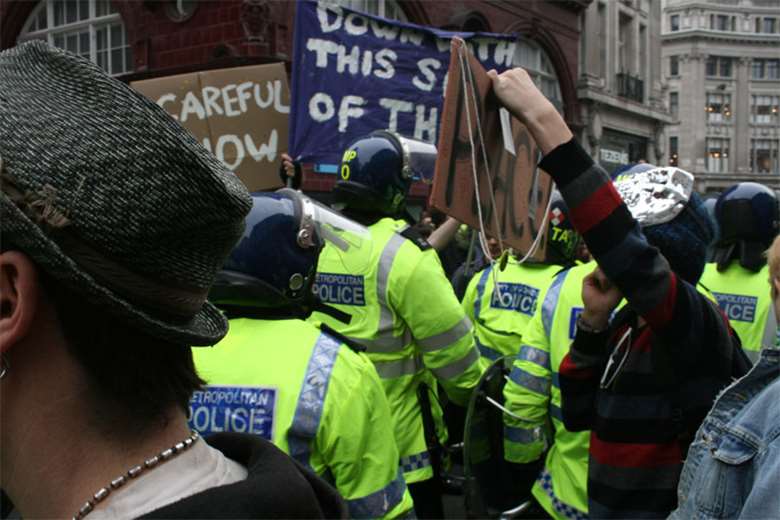Campaign urges police to halt the use of stop and search on young people
Lauren Higgs
Thursday, August 9, 2012
A campaign group of 15 youth organisations is calling on government and the police to radically reduce the use of stop and search on young Londoners.

The Stop & Talk campaign is urging government to suspend section 60 of the Criminal Justice and Public Order Act, because it allows officers to stop and search young people without reasonable suspicion that they have committed a crime.
The campaign - backed by charities including Just for Kids Law, Haringey Young People Empowered (HYPE) and Art Against Knives - is also encouraging police to reduce the use of stop and search more broadly.
In an open letter to government and the Metropolitan Police, the campaign group argue that stop and search is ineffective, has a negative effect on police and community relations and is discriminatory.
“Only one in 10 stops under section 1 of the Police and Criminal Evidence Act results in an arrest, and 0.4 per cent of stops under section 60 result in an arrest for a dangerous weapon,” the letter says. ?
“Yet we know that negative interactions with the police destroy trust and make young people more likely to resent police. For every knife section 60 takes off the streets many more young people lose their trust in the police and turn to weapons to make them feel safer."
Shauneen Lambe, director at Just for Kids Law, said the campaign was necessary to tackle the deteriorating relationship between young people and the police.
“The Metropolitan Police recognises that there are serious problems with the use of stop and search,” she said. “It also recognises that it needs help from those it polices to address those problems. But the young people we represent do not feel empowered to feed back their concerns.”
Lucy Ferguson, director of youth organisation Young Hackney World, argued that stop and search is “the embodiment of the negative relationships young people have with the police”.
“This every day occurrence dehumanises young people, often with little reason given and no differentiation made between criminal and victim,” she said. “The breakdown in relations means that young people don't think about going to the police to report crime or to explain what's happening in their communities.”
The 15 organisations involved in the campaign warned that the young black men they work with are being stop and searched too often and without good reason.
Ondre Roach, an 18-year-old from Hackney who has been stopped more than 30 times, said: “We would go somewhere to chill and have a joke after school, just being teenagers, and then someone would be stopped by the police and it would just change your whole mindset and we would get annoyed and say something and they would say something back and that's when the problems start.”
Jenkins Akinola, a 19-year-old business student, added: “I've been stopped well over 20 times. They are just stopping children because of the way they look. They need a bit more info before they stop someone. If a group of kids aren't bothering anyone and not doing anything they are harassing them and it’s not on.”
In 2009/10 more than 1.3 million stop and searches were undertaken by police forces in England and Wales. The most common power used to stop and search people is under section 1 of the Police and Criminal Evidence Act. The police need "reasonable suspicion" to stop someone under this power
There is a further power to stop and search, under section 60 of the Criminal Justice and Public Order Act. Where a senior police officer has authorised this at large events or after violent crimes the police do not need "reasonable suspicion" to carry out a stop and search.
In 2009/10, black people were nearly 30 times more likely to be stopped and searched under section 60 than white people
Until January of this year, police had a further power to stop and search people under section 44 of the Terrorism Act. This was ruled unlawful by the European Court of Human Rights because the power was deemed too broad to protect people from potential abuses.




